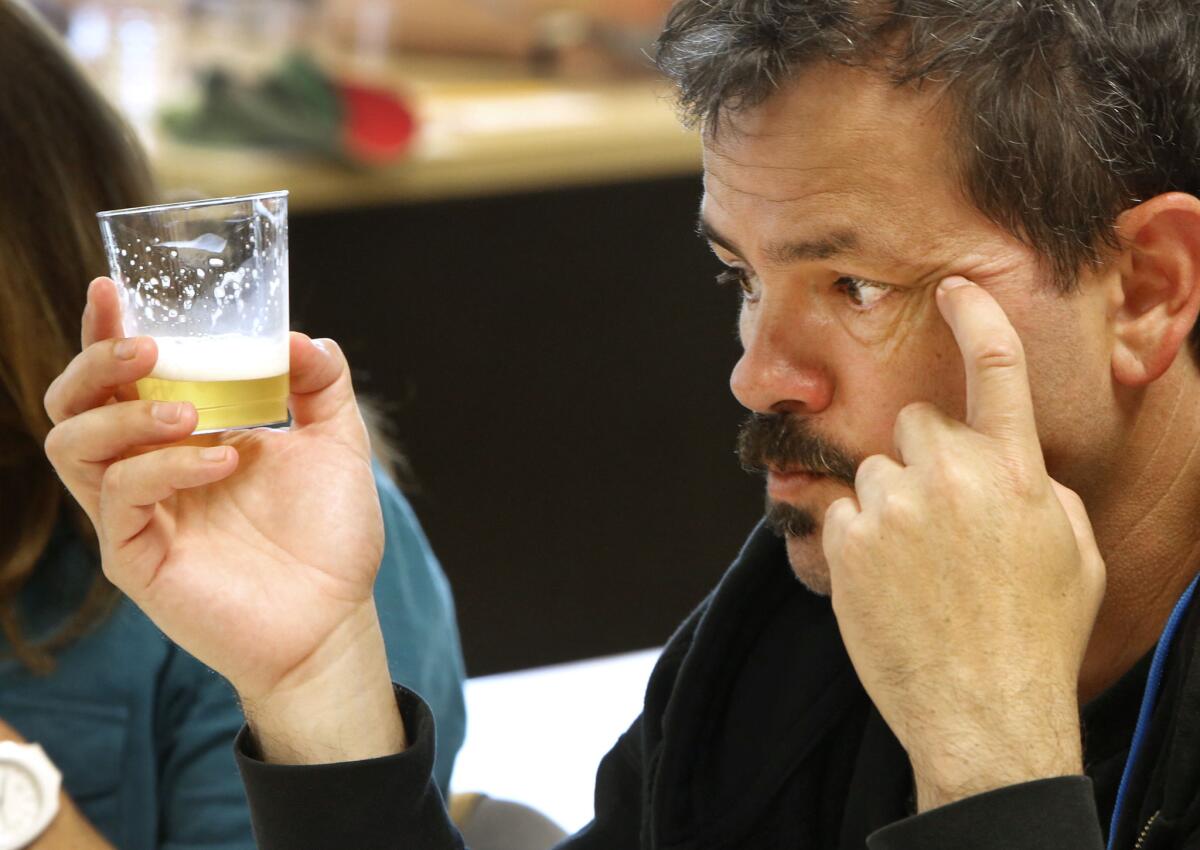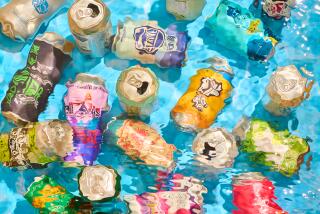Four magic words that will make you sound like a craft beer expert

Like any interest, hobby or obsession, craft beer has its own lingo, and navigating a tap list or communicating what your preferences are when ordering at L.A.’s craft-beer-focused establishments can be intimidating. Here are some terms to know that are growing in popularity among craft beer drinkers.
Dry-hopped -- Most often seen in reference to hoppy IPAs, dry-hopping is a brewing technique in which additional hops are added during the final stages of the beer’s fermentation. The hops don’t add any bitterness to the beer, but do amp up its aroma with the floral, citrus and resinous notes that different hop varieties are known for.
Cask -- Cask ale (sometimes called “real ale”) is a traditional method of serving beer in which the finished beer is transferred into a small cask or “firkin” with some additional sugar, then allowed to re-ferment and naturally carbonate. The cask is then tapped and served -- usually with a hand pump called a “beer engine” -- at “cellar temperature” or about 55 degrees.
A glass of cask ale has a thick, creamy head and a smooth mouthfeel that is as delightful as it is different from a standard glass of beer. Brewers (or more accurately, cellarman) will often use additives such as honey, coffee beans or additional hops to further alter the flavor of the base beer.
Mosaic -- There are dozens of different varieties, or cultivars, of hops grown around the world, and new strains are being developed every year to supply the expanding craft beer industry. Many of these new cultivars exhibit flavors previously unknown in hops, and brewers are quick to utilize new hops in their beers. One extremely popular new variety is Mosaic -- a super-hop that is packed full of tropical fruit, citrus and berry flavors. Recently, it’s been a popular addition to cask beers at local breweries.
Gueuze -- A traditional Belgian sour beer prized for its complex and challenging fermentation flavors, gueuze is created by blending young and aged lambic beers from different casks. The master blenders use the older beer to provide tartness and a wild funk, and the younger beers for body and to provide extra sugars needed for the bottle conditioning that the gueuze undergoes. The result is a tart, dry, earthy and often funky beer with a lively carbonation and a complex aroma.
Gueuze is the grandfather of the American wild ales that are surging in popularity as sour beer becomes less foreign to craft beer drinkers. If you’re a fan of stinky, ripe cheese, the gueuze and wild ales are an amazing choice to accompany them.
ALSO:
The truth about the Jim Beam Burger
TGI Friday’s fined for scamming with cheap liquor
More to Read
Eat your way across L.A.
Get our weekly Tasting Notes newsletter for reviews, news and more.
You may occasionally receive promotional content from the Los Angeles Times.









